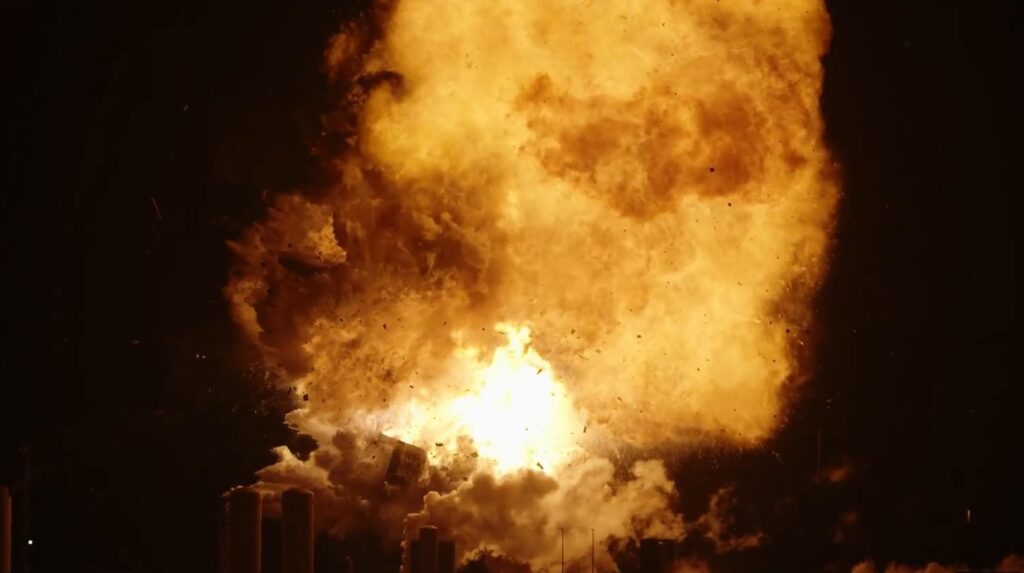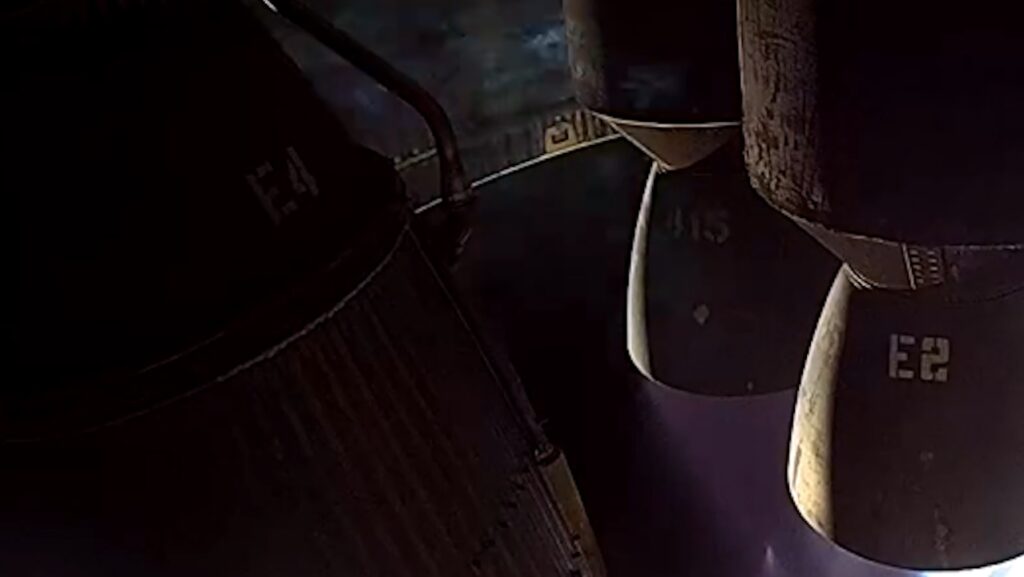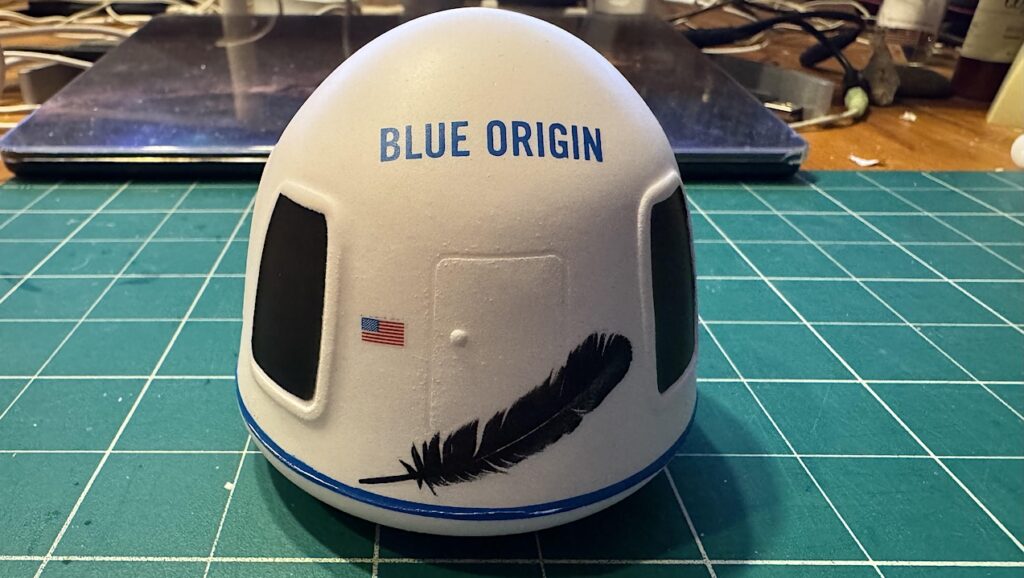Antares Explosion Might Not Be It's Engine's Fault

Orbital explosion probe said to find debris in engine: sources, Reuters
“Last October’s explosion of Orbital ATK Inc’s Antares rocket may have been triggered when debris inadvertently left in a fuel tank traveled into the booster’s main engine, two people familiar with investigations into the accident told Reuters. The sources said the preliminary findings suggest that a simple assembly mistake by Orbital ATK could have caused the explosion, which destroyed a cargo ship bound for the International Space Station.”









I know some of the people who work on the launch pad at Wallops, and from what they are telling me; The launch pad is still destroyed and progress of getting it usable again is going slow, mainly because Orbital refuses to do the right thing and pay for the damages they caused to the launch pad. In fact the pad team is hearing rumors of layoffs unless Orbital pays up. And if that’s the case, they won’t be launching from Wallops in 2016 like they planned. Orbital seems to think NASA should pay for the damages, but it’s not the tax payer’s responsibility to pay for their mistakes.
Should Orbital also reimburse NASA, JAXA and the others for the cargo that was lost? There was science equipment, vehicle hardware, spacewalk equipment, electronics, not to mention the cubesat and nanosats. On top of that there was cost for the time spent by NASA and the other agencies preparing all of this cargo. I would think all of this could add up to a cost similar to or even higher than the cost to repair Wallops pad 0A.
And yet no one expects Orbital to pay for the lost cargo, just as launch providers don’t have to reimburse commercial satellite owners when a satellite is destroyed during launch. Spaceflight has always been understood to be risky business, and barring gross negligence or willful misconduct, it has always be accepted that the risks are shared, and that’s why there are waivers for just about everything, and why satellite owners as far as I know always have to pay for their own insurance for launch failures (or self-insure in the case of government operators like NASA).
The unique nature of spaceflight creates what are essentially partnerships between a launch provider and satellite owner, each benefits from a successful launch, and each suffers if there is a failure. And in this particular case there is a third partner involved which is the Mid-Atlantic Regional Spaceport. This facility and the surrounding area have received a real boost (no pun-intended) from the decision by Orbital to use their facilities. And yes they, like Orbital and NASA, are hurt by the failure.
As for who will pay I think that has already been decided. Senators Warner and Kaine from Virginia arranged for $20 million to be added to the omnibus spending bill that was passed by the House on December 11th. Where that funding stands at the moment I am not sure.
Steve,
Regardless of the US government coughing up 20 mil. it’s not the tax payers responsibility to cover for Orbital not wanting to pay. Furthermore, as I stated in earlier post, the launch pad team will be stopping work soon as stated in a press release from MARS director due to lack of funds. Apparently the Feds are dragging their feet on that allotted 20 mil. Why ? No one knows. So the facts are; 1. No money is coming in for launch pad rebuilding no matter where it’s suppose to come from.
2. work will stop soon.
3. Orbital will NOT make their schedule.
So, it seems to many, that if it’s important to Orbital to make their schedule, they need to pay up. Perhaps at least it would be in their benefit to pay up now and perhaps get reimbursed when and if the feds ever release the funding.
This is a sure indicator of what kind of company Orbital ATK is. Since no matter how you present it, this loss is not a shared responsibility, it is the sole responsibility of Orbital to do the right thing.
Good points if it’s true that not starting repairs on the pad now will mean a delay in when they can resume launches. However since they are apparently committed now to changing out engines that’s probably going to be awhile anyway regardless of pad condition. That’s unfortunate about the people being out of work because of this.
Does anybody know the details on the deal between Orbital and the launch site/NASA? Is it not possible that there is a hold-harmless or other agreement? And if so wouldn’t that be the real story?
if it was not the engine, then of course that means a whole new baal game as far as root-cause analysis. debris in the tank is a procedural problem. Corrective action isn’t switching engines, but discovering which quality control process failure allowed it to happen and deciding if the process flaw is isolated or systemic.
given the engines, switching is probably prudent in any case.
Its not like they would try to spin the story such that its not the engines fault? Of course not…that would be dishonest.
I’m not sure I’d consider shoddy workmanship as being better than a design decision that turned out bad. In the latter case, engineers need to make decisions and sometimes they aren’t the best decisions. That comes with the engineering process. But bad quality control — that’s worse.
After watching the YouTube video “The Engines That Came In From The Cold – And how The NK-33/RD-180 Came To The USA” (
https://m.youtube.com/watch… I must admit to having a soft spot for this engine. Glad to see it redeemed.
You have a grammatical error in your title that just jumped off the screen at me… 🙂
http://grammarist.com/spell…
There must be a lot more to this story. Stay tuned.
You still have the case of buying an engine from a possibly unreliable source.
They were going to have to do that at some point anyway – there’s a finite supply of the NK-33 derived AJ-26 rocket engines.
Daryl, your right. I mean, you’re right about “it’s.” But this is typical today. Young writers are indicators of how poor education has become. I think we just have to let it go. Ha